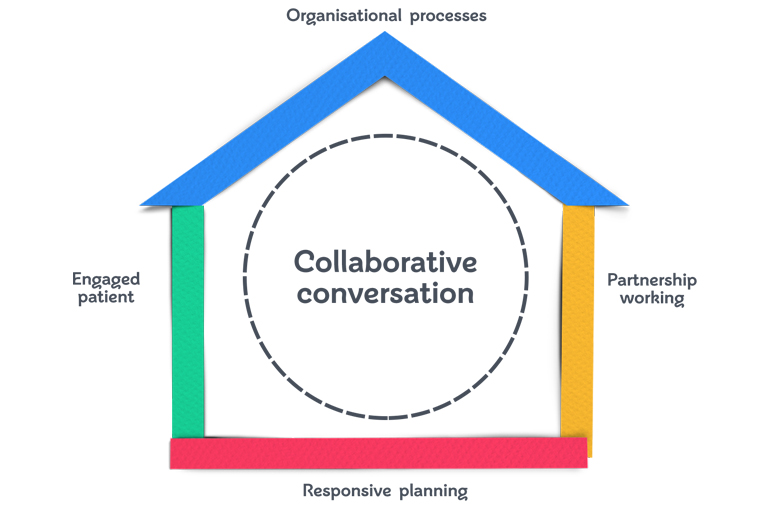Integrated care for long-term conditions
How our programme improved care for people with cardiovascular disease by integrating primary and secondary care via new models of care.
Our NHS was set up to provide care based on the specific conditions that patients present with.
But this model of focusing on the condition, rather than the person, can sometimes be at the expense of holistically addressing people’s physical, mental and emotional health and care needs. It can lead to reactive, episodic care.
Seventy years after the start of the NHS, and with millions more people with long-term conditions (LTCs), many agree this model is not fit for the future.
There must be an alternative.
The alternative is called care and support planning.
This is about giving patients the information and confidence to take control of their LTCs, so they can make informed decisions about their care and self-manage more effectively.
It also calls on the NHS to design services around patients' physical, mental and emotional needs, in a more integrated way.
Providing more holistic support can reduce unnecessary hospital admissions and improve wellbeing. It is also now widely recognised that patients wish to be more involved in their care, and that services need to be better joined up to support them.1,2
Care and support planning is a new approach to care. It moves away from the traditional, paternalistic model of a healthcare professional advising a person on how to manage their health. Instead, it champions a collaborative partnership where patients and healthcare professionals contribute equally.

The patient brings experience of living with their condition and is supported to focus on what is important to them. The healthcare professional brings clinical expertise and experience. Together, they have a collaborative conversation to review how things are going, share ideas and discuss goals, which are summarised in a care plan.
The care and support planning process involves three stages.
This should be a meeting of equals and experts. The prepared practitioner and patient will:

The House of Care is a framework that can help practice teams and organisations adopt a care and support planning approach for people living with LTCs. It sets out what needs to be in place for this approach to happen.
At the heart of the House of Care is a collaborative conversation where the healthcare professional supports the person with LTC(s) to fully explore and describe what matters to them. The healthcare professional still brings clinical issues to the conversation. But through building empathy and listening carefully, they and the patient can co-create an optimal care plan, which will not only manage the person’s condition(s) but will support them to thrive in their day-to-day life.
The House of Care framework was developed by Year of Care Partnerships with the original aim of helping people to self-manage their diabetes, but it can be applied to all LTCs. It was based on evidence that people with LTCs have better outcomes when there is partnership working between an engaged patient and an organised, proactive healthcare system.1,2
The BHF House of Care programme was established to build on learning from the Year of Care programme in diabetes.3 The BHF programme tested the hypothesis that a person-centred approach to heart and circulatory disease – deploying care and support planning via the House of Care framework – can provide better quality care.
Beginning in 2015, the BHF programme took place over three years in five health communities with populations of 50,000 people or more. These were:
BHF funding ended in March 2018 and the programme has been independently evaluated by ICF International using a combination of self-evaluation by sites and interviews with patients, healthcare professionals and key stakeholders from each site.4
a NHS Gateshead and NHS Newcastle CCGs merged in 2015. The evaluation focuses only on work in Gateshead as this was a single site at the time of funding.
1 Coulter, A. et al. 2013. Delivering better services for people with long-term conditions: Building the House of Care. King’s Fund, London.
2 National Voices, 2013. A Narrative for Person-Centred Coordinated Care.
3 Year of Care, 2011. Year of Care Report of findings from the pilot programme.
4 ICF Consulting Ltd, 2018. House of Care Evaluation: Final Report